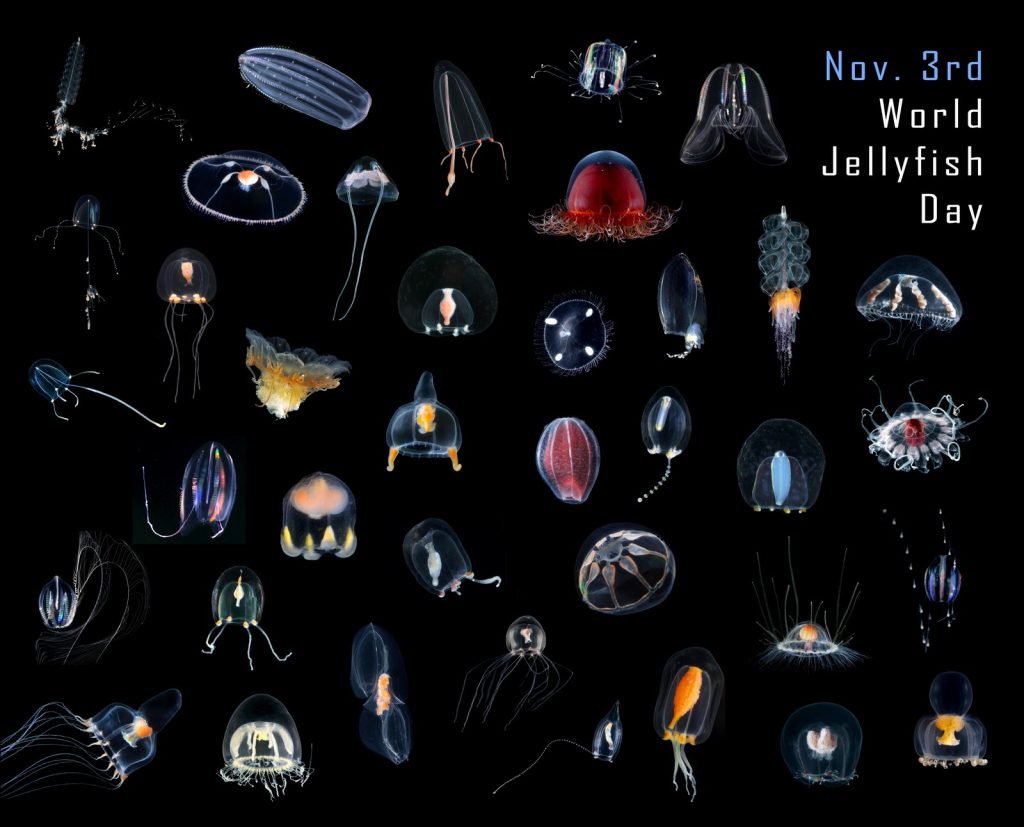Today is World Jellyfish Day, and we at the Cnidaria and Ctenophora team have prepared for the occasion a poster featuring some of the beauties we have collected during the recent years in the context of our Artsdatabanken and EU MSCA projects.
Happy World Jellyfish Day everyone!

A glimpse of jellyfish diversity to celebrate World Jellyfish Day including 38 species from the North Sea, Norwegian Sea, Arctic Ocean and Southern Ocean. Photos: Joan J. Soto Angel
Jellyfish are normally associated with nuisance and pain, and often considered a plague that is taking over the oceans, diminishing its resources, hindering industrial operations, and making beaches less attractive for tourists. However, jellyfish are not only an integral part of healthy pelagic ecosystems, but also key players in planktonic communities. Until recently, their fragile and soft bodies had obscured our knowledge on their true abundance and key role in ocean ecosystems, as regular sampling methods tend to overlook them, giving the false impression that they are ecologically irrelevant. However, recent evidence have shown that they are an important part of the regular diet for many fishes and invertebrates, both while swimming in the water column, and once their remnants fall to the seafloor, transferring a significant amount of carbon to the deep sea. Actually, jellyfish are the top predators in the food web at planktonic scale, comparable to lions in the savanna or great white sharks and killer whales in the open ocean.
Are you a master student interested in working with jellyfish? Check out possible projects here [link]!
-Joan, Luis & Aino
(“team jellyfish”)
